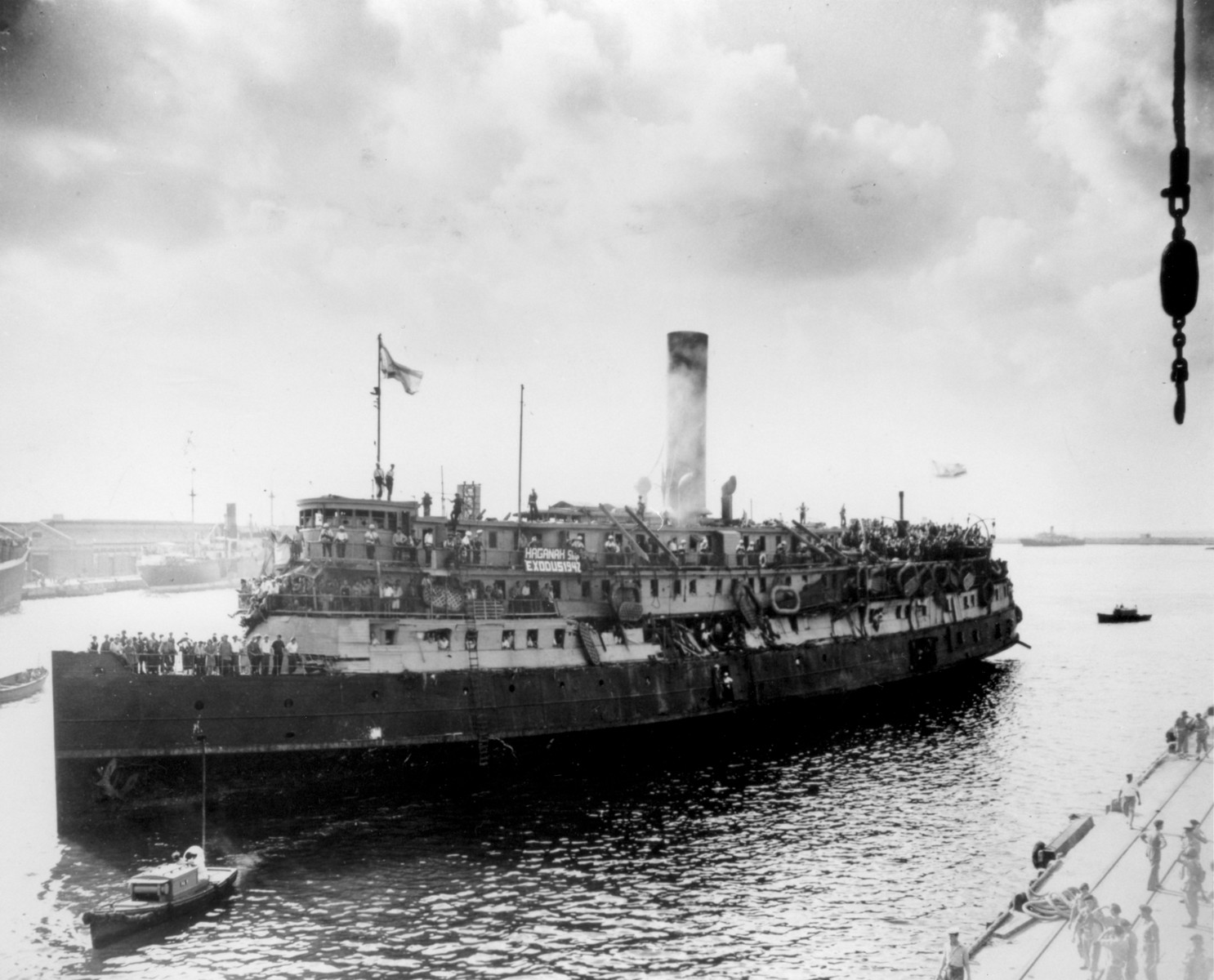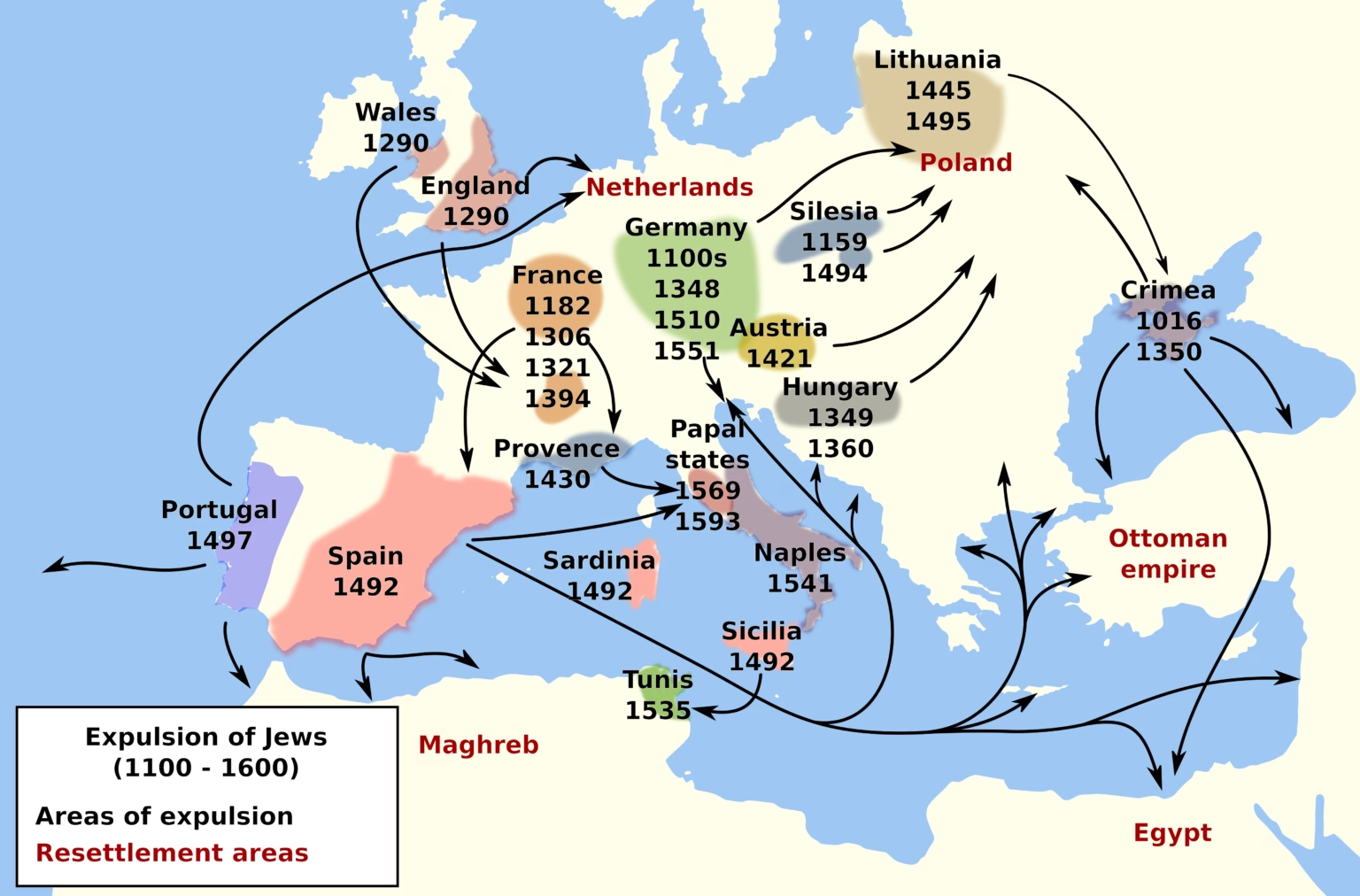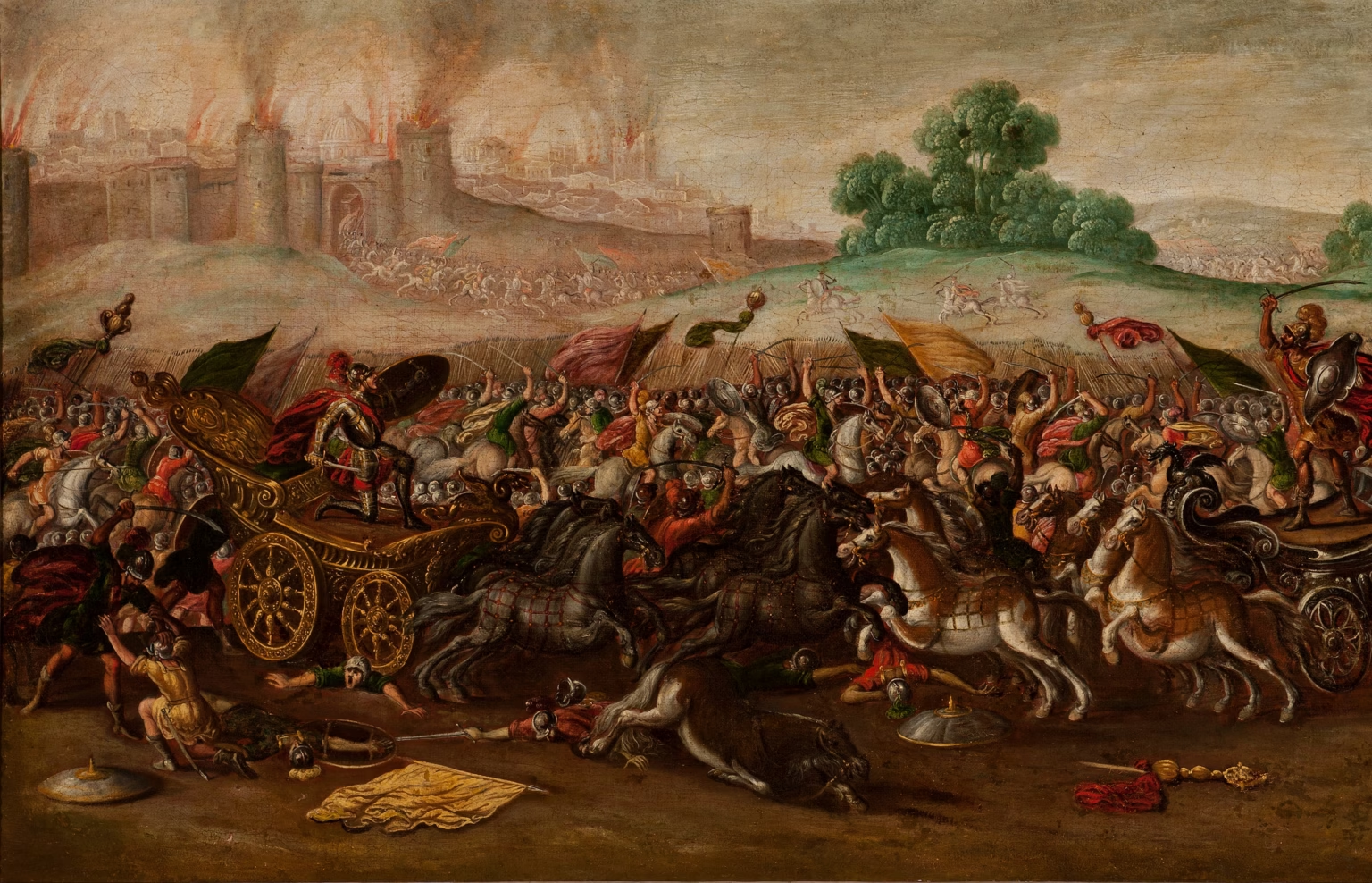MS Exodus launched a Jewish nation
In the summer of 1947, the ship MS Exodus placed the brutal British treatment of Holocaust survivors in the spotlight. This course of events led to a changed world opinion toward a Jewish state.

The damaged immigrant ship Exodus as it is towed into Haifa harbor in July 1947, after being boarded by the British navy. Photo: US Holocaust Memorial Museum
On 14 May 1948 the State of Israel was proclaimed in accordance with the UN Partition Plan of 29 November 1947, the day after Britain handed over the British Mandate of Palestine to the UN on 13 May.
During a period when Nazi persecution of Europe’s Jews was at its highest and the genocide of six million was being achieved, Britain severely restricted Jewish immigration to the British Mandate of Palestine.
A policy document (White paper) of May 1939 was issued by the British government as a reaction to the Arab Revolt in the Mandate 1936–1939, which demanded an end to Jewish immigration. The document limited Jewish immigration to 75,000 Jews over five years and allowed further immigration to be determined by the Arab population.
At the end of the five years in May 1944, only 51,000 of the 75,000 immigration certificates had been issued. The British then allowed immigration to continue at 1,500 Jews per month, until the remaining quota was filled.
Restrictive policy
Even after the liberation of Auschwitz, when the whole world became aware of the genocide of the Jews, the British maintained their restrictive policy. From December 1945 until the end of the mandate in 1948, an additional 1,500 certificates were issued to Jewish immigrants each month, according to Arieh Kochavi’s article “The Struggle against Jewish Immigration to Palestine” (1998) in Middle Eastern Studies.
Despite this, in the years 1936–1948, 100,000 Jews made their way to the British Mandate of Palestine, a sum that included illegal immigration.
On July 11, 1947, over 4,500 Holocaust survivors boarded the battered passenger liner Exodus to break the British blockade. This passenger ship became a symbol of the British treatment of the Jews who survived and wanted to go to Israel and became an international symbol of the need for Jewish sovereignty, writes the World Jewish Congress on its website.
Two killed
British forces boarded the ship as it approached Haifa and towed it to Haifa harbor where they forced passengers off the ship; two were killed and another dozen injured. British forces then transported these Holocaust survivors back to France where they were ordered to disembark. When they refused to leave the ship, the British authorities chose to wait for them to go ashore voluntarily, but instead the passengers went on hunger strike, which increased international attention and forced the British authorities to find another solution.
When they decided to send the survivors to Germany where they would be placed in camps it sparked an international outcry. An American newspaper headline about the incident read “Back to the Reich”, and large protests erupted across Europe.
Just a few months later, on November 29 the same year, 1947, the United Nations voted for the creation of the State of Israel, prompting journalist Ruth Gruber to describe the MS Exodus as “the ship that launched a nation,” writes the World Jewish Congress.


